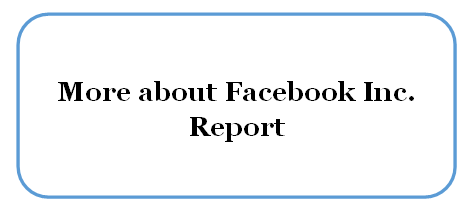Facebook PESTEL Analysis: Two-Way Relationships Between External Factors and Social Media Giant
 PESTEL is a strategic analytical tool and the acronym stands for political, economic, social, technological, environmental and legal factors affecting business organizations. Facebook PESTEL analysis involves a critical analysis of the impact of these factors on the social networking website.
PESTEL is a strategic analytical tool and the acronym stands for political, economic, social, technological, environmental and legal factors affecting business organizations. Facebook PESTEL analysis involves a critical analysis of the impact of these factors on the social networking website.
Political Factors
There is a wide range of political factors such as political stability in the region, the freedom of press, the state of human rights and others that affect Facebook revenues in direct and indirect ways. The social networking site is often used by millions of people as a platform to voice disagreement with government policies and corrupt practices all over the world. This has caused the restriction of the social networking site in a number of developing countries with human rights issues, where governments are afraid that people can use Facebook to spread information and unite for their cause. For example, access to Facebook has been or is currently restricted in whole or in part in China, Iran, and North Korea[1] for the same reasons.
Moreover, along with being impacted by political factors, Facebook also has its own impact on the formation of political landscape in the US and elsewhere. “Ever since the so-called “Facebook election” of President Obama in 2008, the social media giant has been a political reference point for citizens, politicians and media alike”[2]
In 2015, the social media giant established its own Political Action Committee as an attempt to strengthen its ties to Washington, D.C. and to be able to further influence the political climate in the US in its favour. Taking into account increasing popularity of Facebook and its increasing role as news source and communicated tool its influence and integration into political process in local, national and even international levels is expected to increase in the future.
Economic Factors
The implications of many economic factors on Facebook long-term growth prospects are paramount. For example, strengthening of the USD has negatively affected Facebook revenues due to the global scale of its operations. Specifically, the company foreign currency losses amounted to USD66 million, USD87 million, and USD14 million in 2015, 2014, and 2013, respectively.[3] Additionally, the revenues of the social networking site is subject to the inflation and tax rates, cost of human resources, availability of credit and an overall macroeconomic climate in the country.
Similar to political factors as discussed above, Facebook has its own impact on macroeconomic climate, although the nature and scope of this impact is a matter of debate. According to a report, prepared by Deloitte, as commissioned by Facebook, the social networking site was responsible for USD227 billion in global economic impact, and 4.5 million jobs, in the year ended October 2014, roughly equal to the gross domestic product of Portugal.[4] However, these estimates are challenged by a number of respected economists such as Stanford’s Roger Noll who criticized the valuing each Facebook ‘Like’ as a methodology for the report…
Facebook Inc. Report contains the full discussion of Facebook PESTEL analysis. The report also illustrates the application of the major analytical strategic frameworks in business studies such as SWOT, Porter’s Five Forces, Value Chain analysis and McKinsey 7S Model on Facebook Inc. Moreover, the report contains analysis of Facebook’s marketing strategy, its leadership and organizational structure and discusses the issues of corporate social responsibility.
[1] Annual Report (2015) Facebook Inc.
[2] Andrighetti, T. (2016) “How Facebook Has Changed Politics” Lifewire, Available at: https://www.lifewire.com/facebook-and-politics-1240558
[3] Annual Report (2015) Facebook Inc.
[4] Albergotti, R. (2015) “Facebook Touts Its ‘Economic Impact’ but Economists Question Numbers” The Wall Street Journal, Available at: http://blogs.wsj.com/digits/2015/01/20/facebook-touts-its-economic-impact-but-economists-question-numbers/

